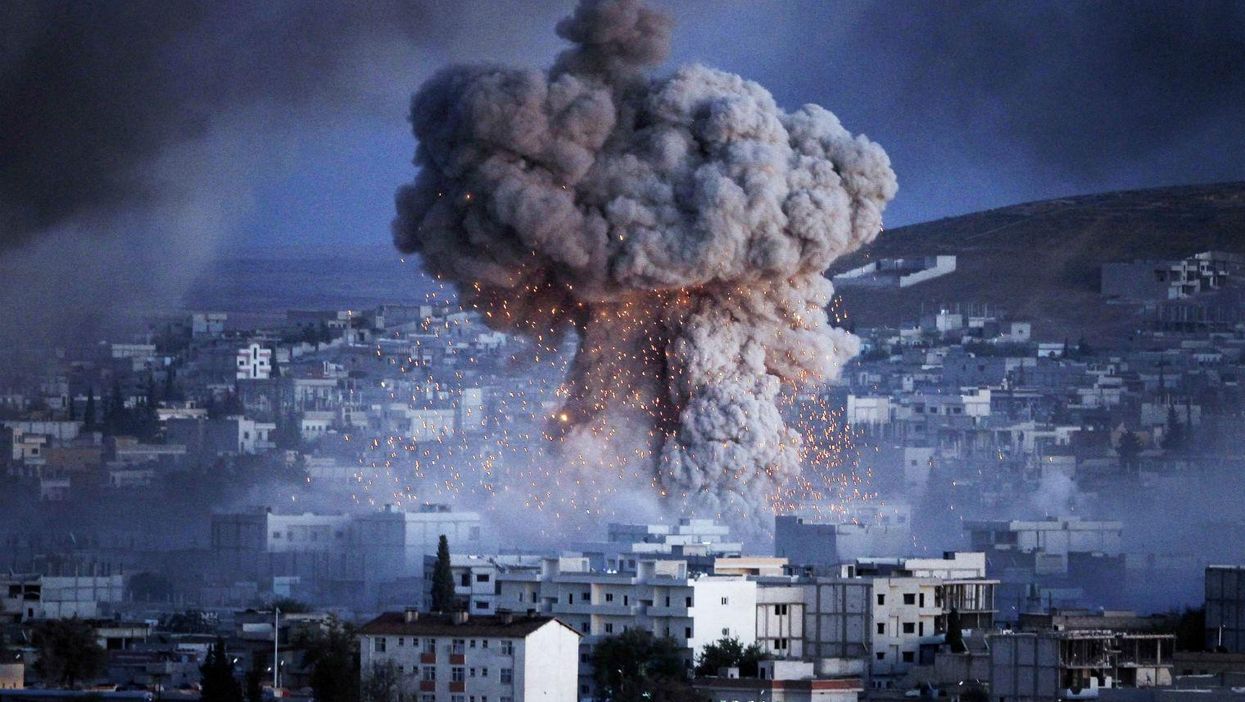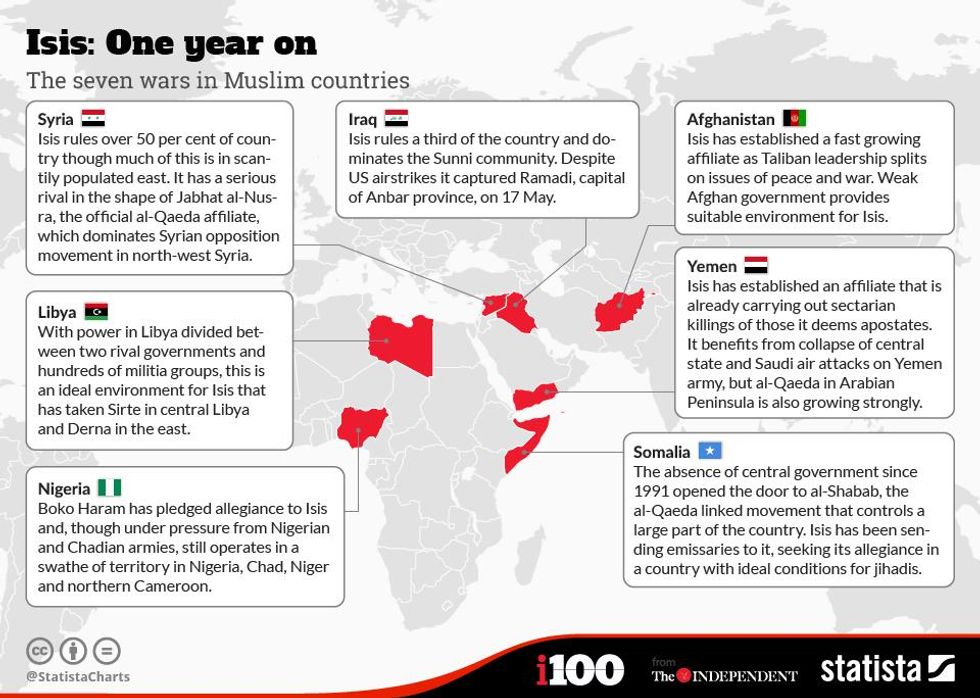News
Patrick Cockburn (edited
Jun 28, 2015

The aftermath of an Isis suicide bomb attack during the battle for Kobani
On June 30 last year, Isis said it was establishing a caliphate in the territories under its control in Iraq and Syria.
As part of a series by The Independent marking this anniversary, award-winning Middle East correspondent Patrick Cockburn, the first western journalist to recognise the rise of Isis, writes for i100.co.uk on the seven conflicts taking place in Muslim countries where state authority is weak or non-existent, providing suitable conditions for Isis and al-Qaeda-like movements to become powerful.
Afghanistan
Isis has established a fast growing affiliate as the Taliban leadership splits on issues of peace and war. The weak government in Kabul provides a suitable environment for Isis to operate.
Iraq
Isis rules a third of the country and dominates the Sunni community. Despite US airstrikes it captured Ramadi, capital of Anbar province, in mid-May.
Libya
With power in Libya divided between two rival governments and hundreds of militia groups, this is an ideal environment for Isis that has taken Sirte in central Libya and Derna in the east. It has carried out horrific killings of Christians from Egypt and Ethiopia.
Nigeria
Boko Haram has pledged allegiance to Isis and, though under pressure from Nigerian and Chadian armies, still operates in a swathe of territory in Nigeria, Chad, Niger and northern Cameroon.
Somalia
The absence of any central government since 1991 has opened the door to al-Shabab, the al-Qaeda-linked movement that controls a large part of the country. Isis has been sending emissaries to it, seeking its allegiance in a country which provides ideal condition for jihadis.
Syria
Isis rules over 50 per cent of the country though much of this is in the sparsely-populated east. It has a serious rival in the shape of Jabhat al-Nusra, the official al-Qaeda affiliate, which dominates the Syrian opposition movement in north-west Syria.
Yemen
Isis has established an affiliate that is already carrying out sectarian killings of those it deems apostates. It benefits from the collapse of the central state and Saudi air attacks on Houthi forces, but al-Qaeda in the Arabian Peninsula (AQAP) is also growing strongly.
Graphic via Statista
Top 100
The Conversation (0)














